Student occupation of Wallis Hall at UR comes to an end after day of protest
A group of about 100 students, faculty and community members protesting the Israel-Hamas war stretched into a large circle on the sidewalk in front of Wallis Hall at the University of Rochester Wednesday afternoon.
It was time to dance.
A young woman in light blue jeans and a white T-shirt led them through the steps of Dabkeh, a dance native to her homeland of the Palestinian territories. Her hair was wrapped in a red keffiyeh scarf and gold bracelets adorned her wrists.
“One, two, kick, drop,” she sang from inside the circle.
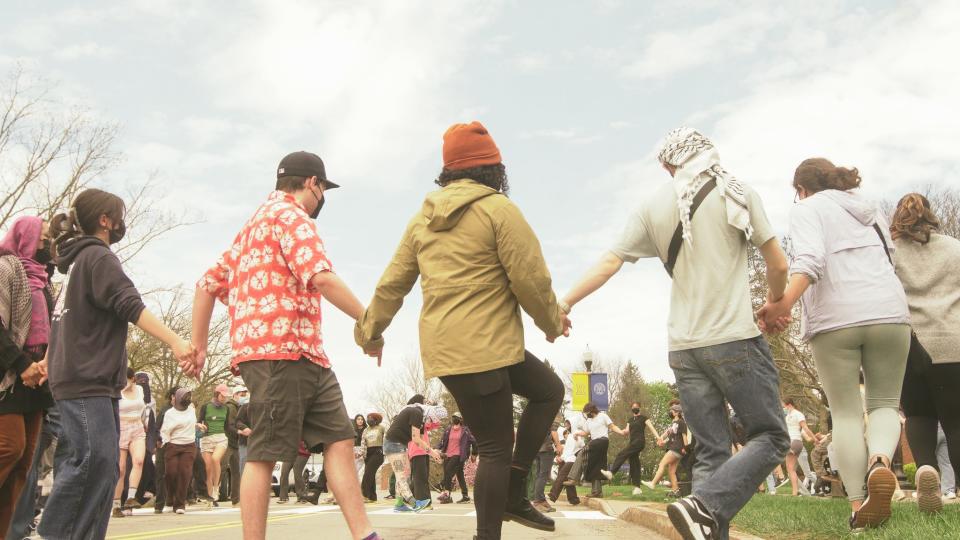
Earlier that morning, about 20 students from the group Students for Justice in Palestine walked into Wallis Hall, where many administrative offices are held, sat down and promised not to leave until the University of Rochester issued a statement that calls for a permanent ceasefire in the Israel-Hamas war and begins the process of university divestment from Israel.
Outside of the building, this joy was an act of protest, too, the young woman said.
“In this way, we are saying, ‘We are here.’”
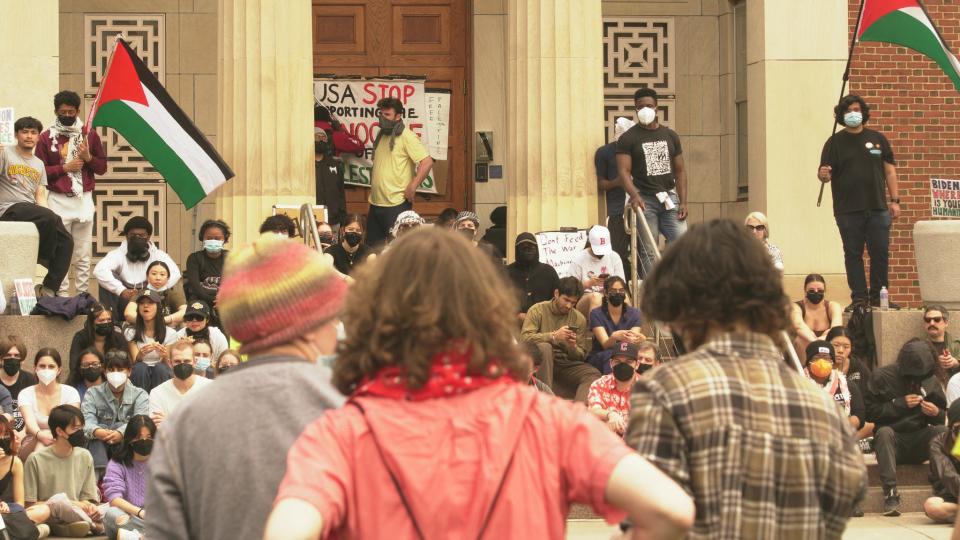
University of Rochester sit-in comes after months of student protests
Local university students have been organizing protests around the war for months and have maintained a tent encampment on UR’s campus since April 23.
Over nine days, the encampment has grown to include over 50 tents and more than 100 campers, organizers said. Aside from raising noise and a visible presence against the war, students there have been building community through teach-ins about other civil rights movements and art workshops.
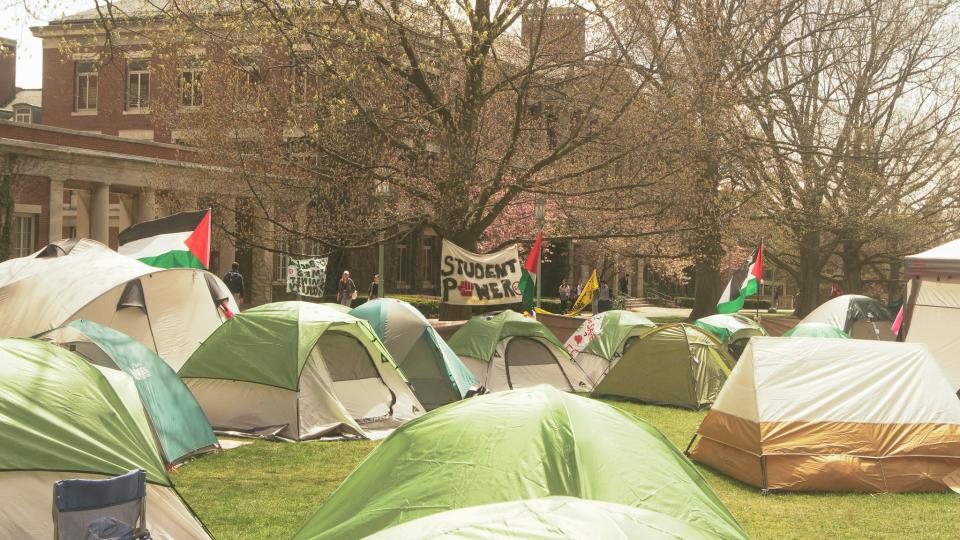
Wednesday’s sit-in at Wallis Hall followed similar demonstrations at university campuses across the country ― though the protest in Rochester remained peaceful.
More than 100 people were arrested at Columbia University Tuesday night when dozens of police officers in riot gear stormed an administration building there to remove pro-Palestine protesters who were holding their own sit-in.
Palestine protests across the nation: Columbia faculty, students continue protests; UCLA cancels classes after melee: Live updates
Around 6:30 p.m. Wednesday, UR released a statement on its website that said protesters had left the building following a "series of conversations between the protester leaders and University administrators and faculty."
In a video on Instagram earlier the day, students inside the building issued four demands to the university, including:
A UR statement calling for a permanent, immediate ceasefire in Gaza;
Academic divestment from Israeli institutions;
The removal of interim bans placed on students for protesting;
No repercussions for students taking part in the sit-in.
It was unclear Wednesday evening whether any of the demands had been met.
"More information will be forthcoming, but the occupation of Wallis Hall has ended," the UR statement read.
Can protesters, UR find middle ground after sit-in?
Protesters outside Wallis Hall Wednesday afternoon said they were undeterred by events at Columbia and elsewhere this week.
“To assume that there will be violence (here), is to assume that the administration refuses to meet our demands,” said Travis Covitz, a protester who works at UR. “I choose to be optimistic that this administration has peace in their hearts and can meet with us.”
Similar protests have faced criticism that they are discriminatory or antisemitic, but Covitz, who is Jewish, said he has seen nothing but peace from Palestinian protesters for months. Demonstrators held space Wednesday for a Holocaust Remembrance Day event.
“I am welcomed here,” Covitz said.
Later Wednesday afternoon, the protest outside of Wallis Hall shifted to reflection. An organizer held up an iPhone to a megaphone. Through it, protesters inside the building read off names of Palestinians who have been killed in Gaza.
The list was so long that, at one point, the organizer had to switch to a different set-up to give her arms a break. She laid the phone in front of a microphone hooked up to a stereo system.
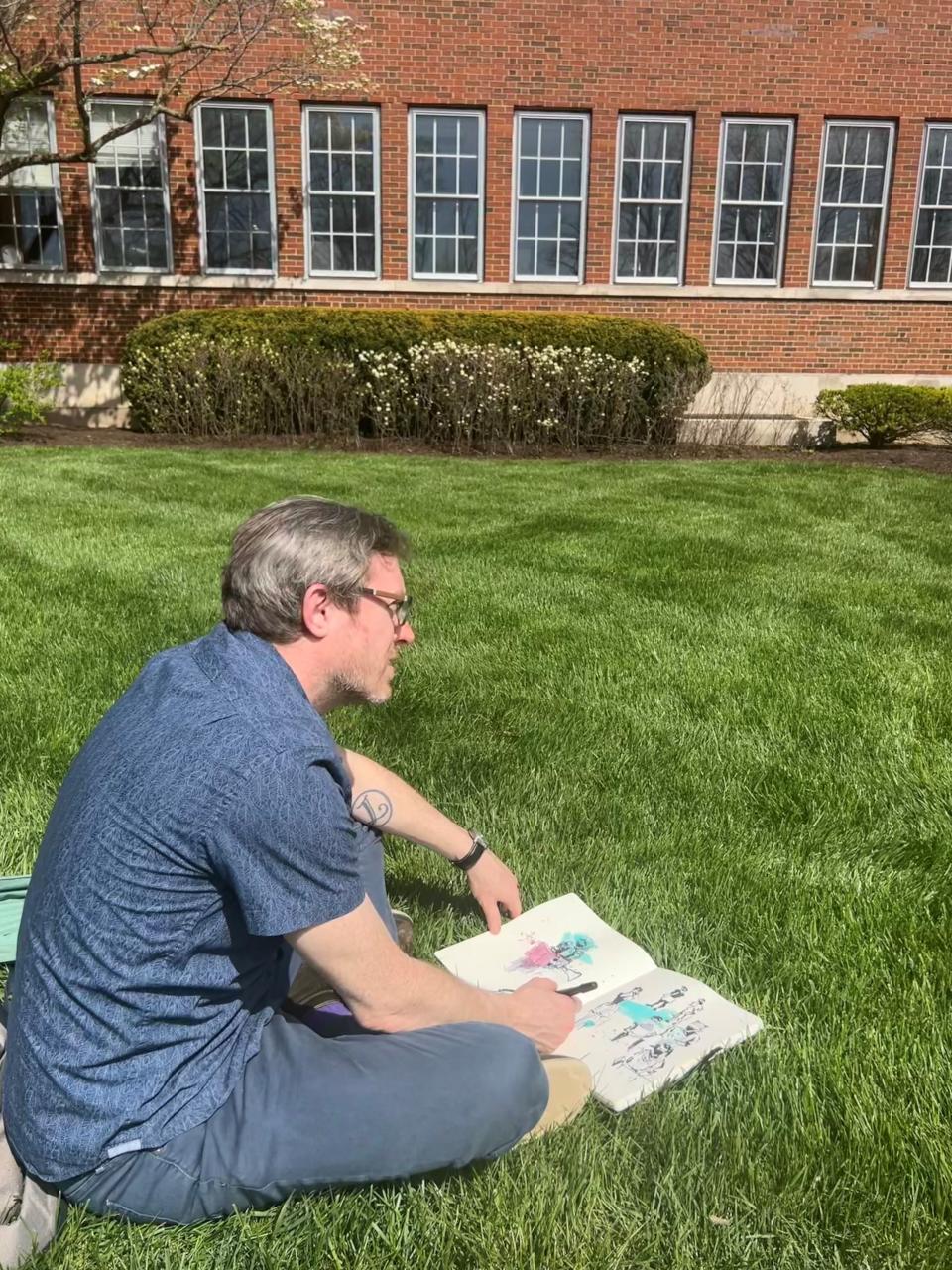
Aaron Delehanty, a UR professor of art and art history, sat nearby on the grass and pulled out his sketchbook. With ink pens, he started to draw the scene in front of him. He painted the stereo red, death splattered across the page.
“It’s kind of sad and beautiful to listen to,” he said. “I’m just making a sketch responding to that. It’s very bloody. I don’t know that I’ve ever had blood put into my drawings before, but there it is.”
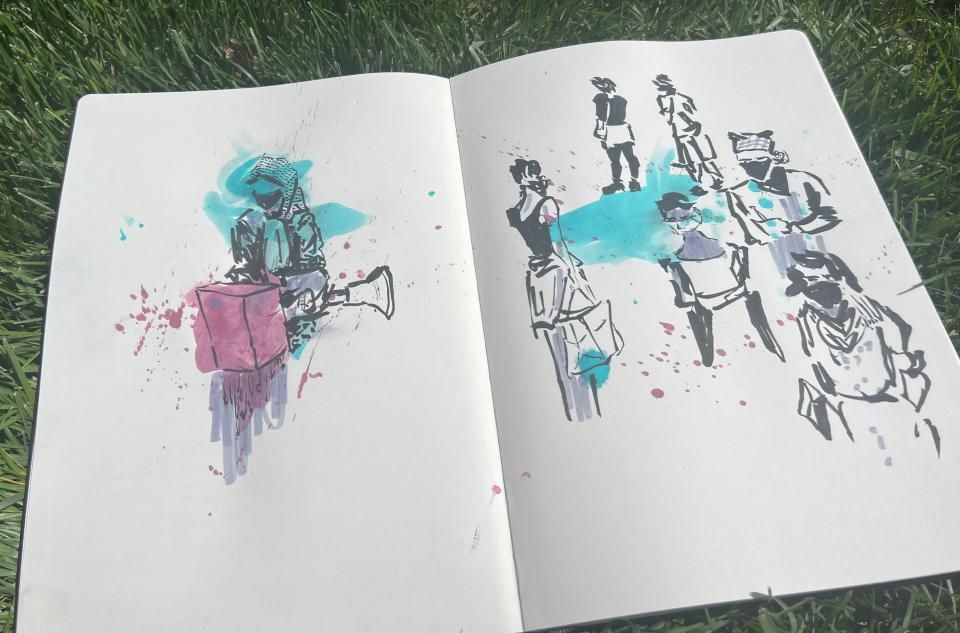
Delehanty said he was having a hard time making sense of the war, that at his age, 46, maybe he’d just become numb to atrocities like this one. He commended the students for speaking up and said he hoped the university would meet them with the same goodwill they were fighting for.
“It’s a peaceful encampment,” he said. “It needs a peaceful response.”
— Kayla Canne reports on community justice and safety efforts for the Democrat and Chronicle. Follow her on Twitter @kaylacanne and @bykaylacanne on Instagram. Get in touch at kcanne@gannett.com.
This article originally appeared on Rochester Democrat and Chronicle: Student occupation of Wallis Hall at UR comes to an end

